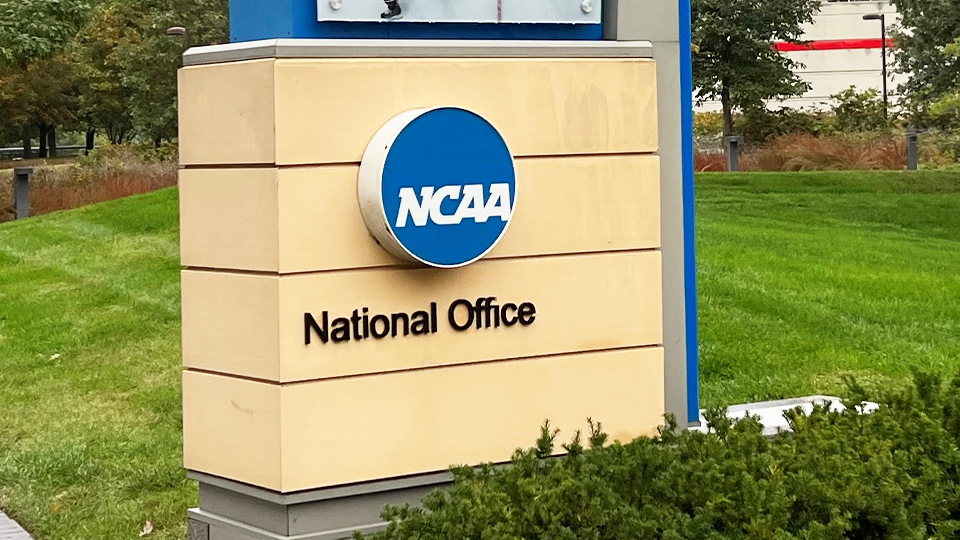NCAA President calls for new D-I tier where schools can pay athletes
Subscriber Benefit
As a subscriber you can listen to articles at work, in the car, or while you work out. Subscribe Now
NCAA President Charlie Baker announced Tuesday that he wants the organization to create a new tier of Division I athletics where schools with the most resources can offer unlimited educational benefits, enter into name, image and likeness partnerships with athletes and directly pay them through a trust fund.
In a letter sent to more than 350 Division I schools, Baker said the disparity in resources between the wealthiest schools in the Football Bowl Subdivision and other DI members — along with the hundreds of Division II and III schools — is creating “a new series of challenges.”
“The challenges are competitive as well as financial and are complicated further by the intersection of name, image and likeness opportunities for student-athletes and the arrival of the Transfer Portal,” Baker wrote.
Division I is currently divided into the FBS and FCS (Football Championship Subdivision). Baker’s proposal is aimed at creating a new subdivision where schools in the so-called Power Five conferences — the Big Ten, Southeastern Conference, Big 12, Atlantic Coast Conference and Pac-12 — can operate.
Conference realignment starting in 2024 will move the Pac-12 out of that group.
Baker noted that athletic budgets in Division I range from $5 million and $250 million annually, with 59 schools spending over $100 million annually and another 32 spending over $50 million. He said 259 Division I schools, however, spend less than $50 million on their athletic programs.
Baker said the difference in the way schools that participate in revenue-generating college sports operate and the vast majority of college sports is complicating attempts to modernize the collegiate sports model.
“The contextual environment is equally challenging, as the courts and other public entities continue to debate reform measures that in many cases would seriously damage parts or all of college athletics,” he wrote.
Baker and college sports leaders have been pleading with Congress to help the NCAA with a federal law to regulate the way athletes can be paid for NIL deals. Baker, a former Massachusetts governor, took over the NCAA job in March.
The NCAA is also facing a new round of legal threats that could force its members to share some of the billions in revenue generated by major college football and basketball, along with giving athletes employees status. One antitrust case working its way through federal court could cost the NCAA billions in damages.
Baker called on NCAA member schools to create a framework to make what he called “fundamental changes.”
“First, we should make it possible for all Division I colleges and universities to offer student-athletes any level of enhanced educational benefits they deem appropriate. Second, rules should change for any Division I school, at their choice, to enter into name, image and likeness licensing opportunities with their student-athletes,” he wrote. “These two changes will enhance the financial opportunities available to all Division I student-athletes.”
Baker said the changes would help level the playing field between men’s and women’s athletics by forcing schools to abide by gender equity regulations as they invest.
He said schools in a new tier of Division I should be allowed, while staying compliant with Title IX, to “invest at least $30,000 per year into an enhanced educational trust fund for at least half of the institution’s eligible student-athletes.”
A new DI subdivision should also allow members to create rules unique rules regarding “scholarship commitment and roster size, recruitment, transfers or NIL.”
